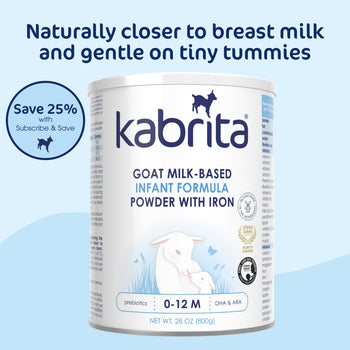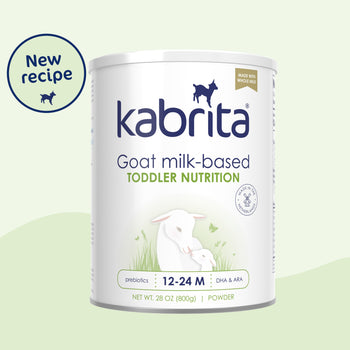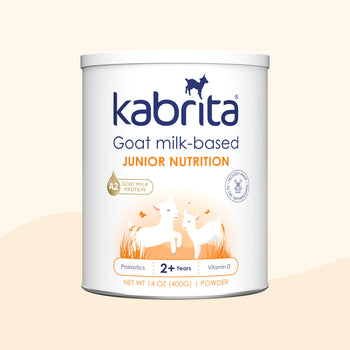Lactose Intolerance in Babies: A Discussion with the Experts

Coffee with Kabrita is an Instagram Live series where we bring together experts on various topics to provide informed feeding support for parents. We recently had the pleasure of hosting Mallory Whitmore (The Formula Mom), and pediatrician Dr. Shannon Seckel to discuss lactose intolerance in babies and lactose in formula.
Considering that lactose intolerance is relatively uncommon under the age of 2 or 3, we were surprised to learn that both of our guests are asked regularly about lactose intolerance as well as about lactose in formula. Many parents seem to have questions!
If you missed our Coffee with Kabrita segment on Lactose Intolerance, you can watch a replay below! Or, keep reading to learn our key discussion points throughout the session.
Here are 5 Key Takeaways:
-
Lactose Intolerance is uncommon under the age of 2 or 3
Almost all babies, aside from a few genetic conditions, are born with lactase enzyme, and designed to digest lactose. While there is a disproportionate amount of baby formula that is lactose-free or lactose reduced, it’s worth exploring options before going lactose-free.
-
Protein sensitivity may be a more likely explanation for minor digestive issues
Some babies may have a mild digestive issue associated with the cow milk protein, not difficulty digesting the lactose. This is different than a cow milk allergy, as Dr. Seckel explains, which typically presents as more severe symptoms including blood in the stool, vomiting and failure to thrive.
-
Minor symptoms may be developmentally normal
While it’s difficult to see our little ones uncomfortable, both of our guests suggested that sometimes minor issues may be a part of normal development and resolve on their own with time.
-
Gentle protein source may be helpful
For babies with minor issues that seem to be associated with cow milk sensitivity, finding a formula with an easier to digest protein source may be helpful. Kabrita Goat Milk Toddler Nutrition contains naturally easy to digest goat milk protein, which is A2 in nature, and gentle on baby’s tummy.
-
Amount of whey protein in formula is important
Mallory highlighted the importance of whey protein in formula. Whey is the portion of protein that remains liquid in the gut and digested more quickly, while casein forms the curd. Since cow and goat milk contain more casein than whey, she suggests looking for a formula with added whey to help digestibility. Kabrita Goat Milk Toddler Formula contains an adapted whey:casein ratio with added goat milk whey.
We are so grateful to have had the chance to speak with such wonderful experts! You can follow Dr. Shannon Seckel on Instagram @doctor_shannon for a peak into her life as a pediatrician, and Mallory Whitmore @theformulamom for formula tips, or visit her website for extensive formula feeding resources.
*Not suitable for cow milk protein allergy



